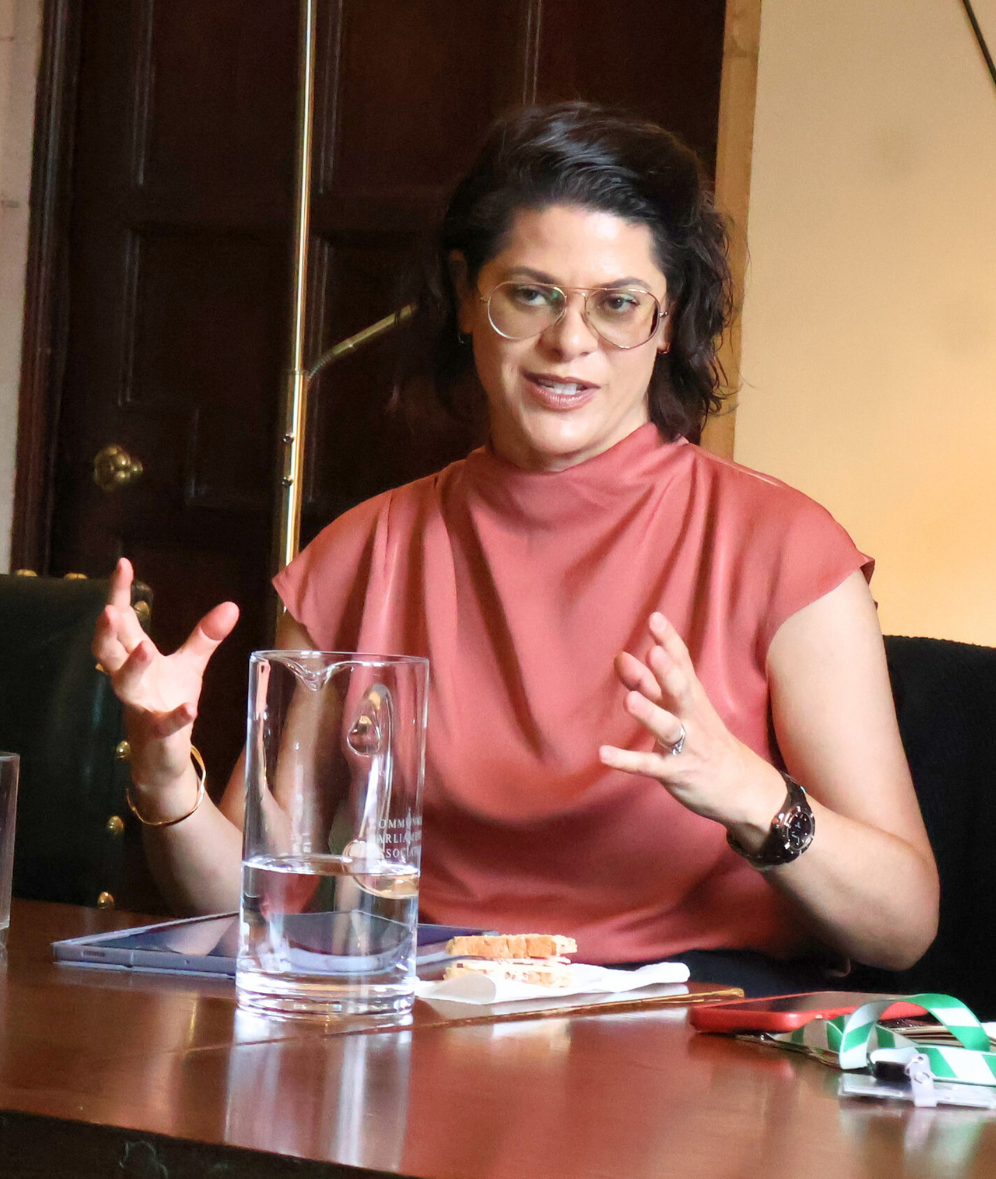"The work that CPA UK does is so important"
Published 11 August 2025
Dr Sofia Collignon took part in our Lunchtime Conversation about threats to democracy and how we cope with those threats.
Sofia reflects on the conversation which took place in the CPA Room in July.
Our next Lunchtime Conversation will be on Tuesday 21st October.
"It was a great honour to take part in this panel discussion on threats to democracy and the role of international cooperation in mitigating them.
I was grateful to share the conversation with Lord Jonathan Evans and Emily Darlington MP, chaired by Julian Lewis MP.
My contribution focused on how misinformation, harassment, and emerging technologies affect political participation and public trust, especially in Commonwealth democracies. I highlighted the increasing intimidation of parliamentarians. Recent data shows that during the UK General Election 2024, 85% of candidates reported harassment during the last general election and 30% of candidates were targeted with false or misleading information. Other countries like Canada, Australia, and South Africa show similar trends, including intersectional abuse affecting Indigenous and minority MPs. Gendered harassment has direct consequences for democratic representation, leading to self-censorship, early exits from public life, and a narrowing of who participates in politics. Legal, cultural, and platform-level responses are all needed.
Drawing from country-specific cases, I pointed to New Zealand’s multi-tiered digital safety strategy and Australia’s enforcement-based approach. These include legislation, public toolkits for MPs, social media monitoring, and criminalisation of deepfakes and doxxing. In contrast, Cyprus has general digital protections but lacks targeted support for political elites. This points to the importance of establishing international standards for safeguarding people in public life.
In my intervention, I raised concerns about how we rely heavily on social media platforms to self-regulate and manage disinformation and online abuse. Yet, the landscape has changed significantly in the past five years, new platforms have emerged, ownership has shifted, and many are now used as megaphones for ideology. This raises some questions: do we want to place our hopes for democratic integrity in the hands of these platforms? One possible step is to ask them to publish the equivalent of a transparent "edit trail" for political content and make their ideological leaning evident to all users. We must also develop frameworks that recognise the reality of multiple perpetrators, being state-linked, ideological, and/ or domestic, who contribute to online and offline harm.
The panel discussed the broader erosion of trust caused by AI-driven misinformation and conspiracy amplification. In response, democracies must invest in digital literacy, regulatory oversight, and transparency to counter these threats. I argued that international cooperation must go beyond security and defence. That is why the work that CPA UK does is so important.
The CWP Anti-Harassment Policy Guidelines and Standards for Codes of Conduct for MPs and the Parliamentary Workplace provide important guidelines for Parliaments to combat harassment. Civic infrastructure, peer-learning networks, and gender equality mechanisms, such as the Commonwealth Women Parliamentarians Network, are essential for protecting democratic participation. Academic research plays a role by identifying early signs of backsliding and supporting international frameworks with comparative evidence and data."

Dr Sofia Collignon from Queen Mary University of London